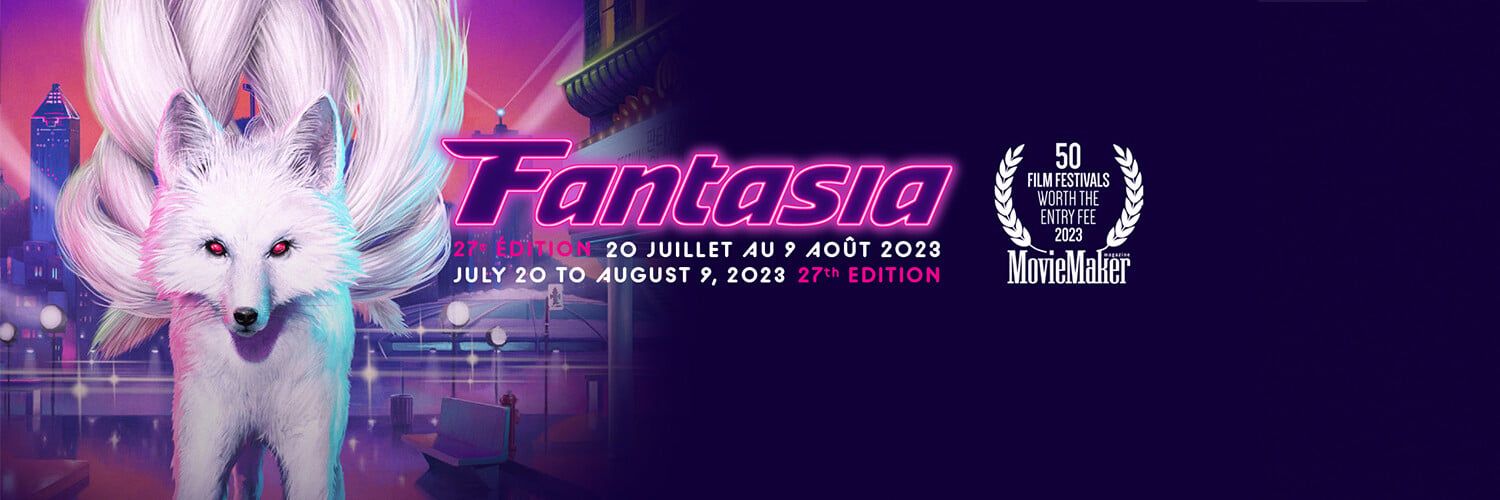


There are few monsters more ingrained in the history of horror cinema than the werewolf. From George Waggner’s Universal production The Wolf Man to John Landis’ titanic An American Werewolf In London up to modern day masterpieces such as Late Phases, the werewolf has always been a reliable creature from which all sorts of horror can spring. Rather than attempting to reinvent the wheel, Larry Fessenden’s Blackout chooses to almost sideline the actual werewolf, instead using the beast almost as a Macguffin in a broader tale.

Blackout is the story of Charley, an alcoholic artist who’s at the end of his rope. Not just because he’s become something of an outcast due to his drinking, or that his relationship and career are both wrecked, but more so because Charley is a werewolf and people around him turn up dead during the full moon. In the midst of this, Charley becomes entangled in the politics of small-town America: a local businessman is exploiting migrant workers and then laying the blame for job loss for locals at their feet, all the while growing richer and richer as the town grows more and more destitute. Charley decides enough is enough, and mayhem ensues. You know the story.

What makes Blackout such a compelling film is that Charley’s nocturnal misadventures are almost mere sidenotes in a wider story. I would argue that the werewolf isn’t even the source of the true horror in the film. Sure, a lot of people are concerned that every full moon for the last couple months people have been turning up looking like hamburger, but Fessenden folds this into a narrative of xenophobia and hysteria that has gripped Talbot Falls (get it?!). In an economic downswing, people become afraid, and when people become afraid, they point they look for someone to blame and in this case it’s the local Mexican American community. Talbot Falls is already a powder keg by the time the murders start, and it’s fascinating to see these murders become just more ammunition for mob mentality. Instead of relying on blood and guts and full moon mayhem for the horror, Fessenden gives us a very believable tale of misdirected class hostility. The scene in which a sheriff is shouted down, and a lynch mob is sent after a wrongfully accused Mexican American man is by far the scariest scene in the entire film, and that requires no suspension of disbelief to be frightening. And that’s the really great thing about Blackout: if you take away the werewolf element it’s still tremendously compelling.

Fessenden chooses a path of least resistance in this film when it comes to werewolf design. Rather than trying to get to a finish line that Neil Marshall blasted across twenty years ago with Dog Soldiers, Fessenden chooses the tried-and-true classic wolf man design: literally, a man with wolf-like features. It’s a touch hokey, sure, but it’s still scary enough to keep things fun and interesting.
The performances in this film are another part of elevating it. We’ve got Marshall Bell bringing his chops as the sleazy businessman out to exploit a town fears to line his own pockets, James LeGros as his trigger-happy right-hand man, and while her screen time is woefully short the legend herself Barbara Crampton makes an appearance as a lonely woman desperately in need of Charley’s, ah, services. But ultimately, it’s Alex Hurt as Charley who carries the film. Hurt makes Charley the classic everyman. He brings an instant likeability and very real sadness to the character, as well as a restrained wildness just below the surface. Just about everyone in the films seems to genuinely like Charley, and Hurt’s performance goes a long way in making that seem believable. Hurt gives us a man who has accepted his fate but simply wants to do something good before calling it quits, and he doesn’t do it cheesily or melodramatically.

Blackout is not without its faults. The dialogue at times is a bit silly, the run time is just a touch too long, and there are moments when the film seems to be, shall we say, overreacting. None of these shortcomings are enough to derail the ride the film seeks to take us on, however. In the end it’s still a blast to watch and wholly enjoyable.
It might be a bit rough around the edges, but by and large Blackout succeeds in what it sets out to do. It tells a story that is classic in more ways than one but does so in a way that make said story its own. It’s fun, it’s heartfelt, it’s scary, and most of all it is relevant. Larry Fessenden knows what scares us, and Blackout is further proof of that. But Fessenden is equally aware of what is truly frightening. It’s not werewolves running amok under the full moon, but the rich and powerful quietly turning the rest of us against one another, and Blackout is also proof of that.




